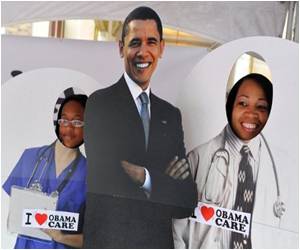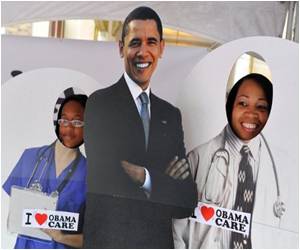
California Republican strategist Jonathan Wilcox, who has taught a course on politics and celebrity at USC, had his doubts about the entire Hollywood idea as he felt it was very late to influence views. "This is an attempt to use entertainment pop culture to fix a political challenge," he said. "It will be received as a partisan political message, no matter how cleverly it's delivered."
About 16 percent of Americans are uninsured and surveys show that many of them have hardly if any knowledge about the health care law. For those who could benefit from coverage, "we want them to get the facts. We don't believe the government alone can break through with those facts," said David Zingale, a California Endowment senior vice president.
Arthur Caplan, head of the division of medical ethics at New York University's Langone Medical Center, said to have credibility Hollywood must present the health care plan with the pro and cons.
"If there are drawbacks and glitches and discontent, that should be part of the presentations," said Caplan, who supports the law. "It should not be a place to propagandize; it should be a place to have honest open discussion, wrinkles and all, flaws and all, on health reform," he said. Critics of the law will be closely watching to see if "Hollywood might be airbrushing the president's core program, because they are close to the Democrats."
A survey conducted several years ago for the Gay & Lesbian Alliance Against Defamation found that among those who said their feelings toward gays and lesbians had become more favorable, many said a contributing factor was seeing more gay and lesbian characters on TV and in movies. Vice President Joe Biden has credited the 1998-2006 TV sitcom "Will & Grace," which featured a gay character, with doing "more to educate the public than almost anything anybody's done so far."
Advertisement
References:
Advertisement
Michael R. Blood and Sandy Cohen, November 2013
Source-Medindia











